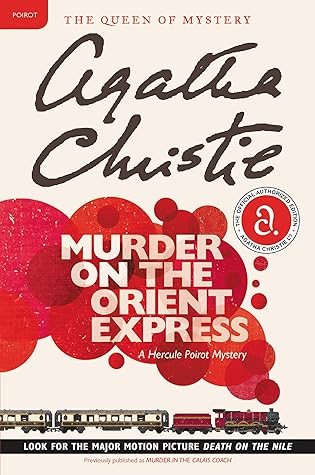More on this book
Community
Kindle Notes & Highlights
Read between
January 1 - January 4, 2024
She was, he judged, the kind of young woman who could take care of herself with perfect ease wherever she went. She had poise and efficiency. He rather liked the severe regularity of her features and the delicate pallor of her skin. He liked the burnished black head with its neat waves of hair, and her eyes, cool, impersonal and grey.
“Voilà ce qui est embêtant,” murmured Poirot vexedly. He glanced up at the clock.
M. Bouc was a Belgian, a director of the Compagnie Internationale des Wagons Lits, and his acquaintance with the former star of the Belgian Police Force dated back many years.
The body—the cage—is everything of the most respectable—but through the bars, the wild animal looks out.”
“Ce n’est rien. Je me suis trompé.” “Bien, Monsieur.” The conductor scurried off again, to knock at the door where the light was showing. Poirot returned to bed, his mind relieved, and switched off the light. He glanced at his watch. It was just twenty-three minutes to one.
“Vous êtes un directeur de la ligne, je crois, Monsieur. Vous pouvez nous dire—”
“It was not, clearly, a scientific crime,” said Poirot. “It was most unscientific,” said Dr. Constantine. “The blows seem to have been delivered haphazard and at random. Some have glanced off, doing hardly any damage. It is as though somebody had shut their eyes and then in a frenzy struck blindly again and again.”
“You will excuse me, Monsieur,” she said, “but may I ask your name? Your face is somehow familiar to me.” “My name, Madame, is Hercule Poirot—at your service.” She was silent a minute, then: “Hercule Poirot,” she said. “Yes. I remember now. This is Destiny.”
“I thought there were no detectives on the train when it passed through Yugo-Slavia—not until one got to Italy.” “I am not a Yugo-Slavian detective, Madame. I am an international detective.” “You belong to the League of Nations?” “I belong to the world, Madame,” said Poirot dramatically.
Poirot did not reply for a moment. He was studying a grease spot on a Hungarian diplomatic passport.
“That is the psychology,” said M. Bouc. “And one must respect the psychology. This crime has a signature and it is certainly not the signature of Colonel Arbuthnot. But now to our next interview.” This time M. Bouc did not mention the Italian. But he thought of him.
“The impossible cannot have happened, therefore the impossible must be possible in spite of appearances.”
“And yet I knew and loved Sonia Armstrong. What do you think, then? That I would not soil my hands with killing such canaille as that man Cassetti? Well, perhaps you are right.” She was silent a minute or two, then she said: “With such a man as that, do you know what I should have liked to have done? I should have liked to call to my servants: “Flog this man to death and fling him out on the rubbish heap.” That is the way things were done when I was young. Monsieur.”
“I think, Madame, that your strength is in your will—not in your arm.”
“How fast you go. You arrive at a conclusion much sooner than I would permit myself to do.”
“I like to see an angry Englishman,” said Poirot. “They are very amusing. The more emotional they feel the less command they have of language.”
“Ma foi,” said M. Bouc with violence. “But does everybody on this train tell lies?” “That,” said Poirot, “is what we are about to find out.”
“Nothing would surprise me now,” said M. Bouc. “Nothing! Even if everybody in the train proved to have been in the Armstrong household I should not express surprise.” “That is a very profound remark,” said Poirot.
I remembered a remark of Colonel Arbuthnot’s about trial by jury. A jury is composed of twelve people—there were twelve passengers—Ratchett was stabbed twelve times.
“Ratchett had escaped justice in America. There was no question as to his guilt. I visualized a self-appointed jury of twelve people who condemned him to death and were forced by exigencies of the case to be their own executioners. And immediately, on that assumption, the whole case fell into beautiful shining order.
Then, in a soft rich dreamy voice, quite unlike the one she had used all the journey, Mrs. Hubbard said: “I always fancied myself in comedy parts.”
“Then,” said Poirot, “having placed my solution before you, I have the honour to retire from the case….”


